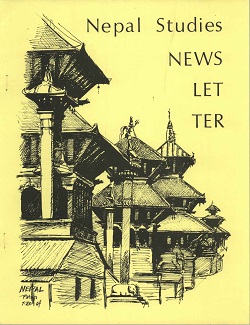Author Biography
Tom O'Neill is an anthropologist and Professor in the Department of Child and Youth Studies at Brock University in St. Catharines, Ontario, Canada. His research in Nepal dealt with petty-capitalism, child labor and youth “living rights” as carpet weavers. He also investigated labor migration and the effects of the Maoist insurgency on children and youth. His current research is on youth political engagement in Nepal’s emerging democracy. He is most recent book is The Heart of Helambu: Ethnography and Entanglement in Nepal (2016, University of Toronto Press).
Bijay Raj Poudel is an anthropologist and development practitioner with a decade of experience working with community and youth. He received his Master’s degree in Anthropology from Tribhuvan University and served at the Association of Youth Organizations Nepal (AYON), a national network of youth-led organizations where he led various youth empowerment and community development projects. Currently, he is the director of the Hands-On Institute, which organizes development centered educational treks for international students.
Nabin Maharjan is a PhD candidate in the Department of child and Youth Studies at Brock University in St. Catharines, Ontario, Canada. After graduating from Tribhuvan University, he worked with the Yale Urban Health Program (a community health project of United Mission to Nepal) as a health promoter to conduct health survey and promotion activities in Patan. His current research is on youth civic engagement among second generation Nepali-Canadians in the Greater Toronto Area.
Abstract
Nepal’s transformation from an autocratic monarchy to a democratic republic presupposes the development of democratic institutions, and the current generation of Nepali youth, particularly those in higher education, are uniquely situated in that process. As such Nepali youth constitute a distinct generation along the lines specified by Karl Mannheim and others. In the past efforts to mobilize Nepalese youth have been aimed at integrating them as useful assets in the service of Nepalese political institutions, such as political student unions, but in this paper, based on fieldwork and interview data collected in 2013 and 2016, we argue that politically active youth today should be understood as an autonomous though heterogeneous constituent force that is in counterpoint with normative political institutions.
Acknowledgements
The authors would like to thank the Association of Youth Organizations Nepal (AYON), Nepal Yuwa, the Centre for Nepal and Asian Studies and in particular Mrigendra Bahadur Karki, for their assistance with this research. They are grateful as well for the generosity of the research participants.
Creative Commons License

This work is licensed under a Creative Commons Attribution-Noncommercial-No Derivative Works 4.0 License.
Recommended Citation
O'Neill, Tom; Poudel, Bijaya Raj; and Maharjan, Nabin. 2020. Youth Political Engagement and Democratic Culture in Republican Nepal. HIMALAYA 39(2).
Available at:
https://digitalcommons.macalester.edu/himalaya/vol39/iss2/6


